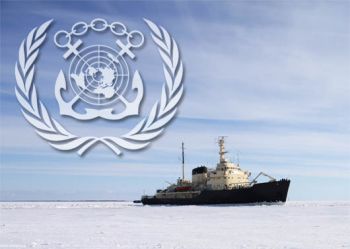International public law
 Photo: Arctic PortalInternational public maritime law should be defined by the complexity and the quantity of regulations on the use of world´s oceans.
Photo: Arctic PortalInternational public maritime law should be defined by the complexity and the quantity of regulations on the use of world´s oceans.
It shell be strictly differentiated from the law of the sea, which is only small part of international set of rules and mainly regulates the maritime zones and rights and obligations of states with regards to them.
Law of the Sea is mainly included in UNCLOS, when the international public maritime law sets for governing issues that arise between private law entities, being the actors in the maritime traffic and activities conducted therein.
The international public maritime law provides the regulations for safety and security standards with regards to private relations in maritime transport. It defines environmental issues and clarifies the behavior of private legal actors in international maritime traffic.
International safety standards are included in the codes and procedures adopted by the framework of SOLAS. However, there are several legal documents which jointly provide with the regulations with regards to safety at sea.
These include:
- Convention on the International Regulations for preventing Collisions at Sea
- International Convention on Standards of Training
- International Convention on Maritime Search and Rescue
- Certification and Watchkeeping for Seafarers
- International Convention on Load Lines
- International Convention for the Safety of Life at Sea
There are certain set of rules provided by SOLAS, mostly connected to customary law and good practice. The first SOLAS Convention was adopted after the Titanic disaster in 1912 and the most recent version with later amendments came into force in 1974. The SOLAS Convention is still the biggest challenge for international Maritime Organization as it needs to be regularly updated to catch up with new technologies and standards in marine shipping operations.
The main objective of the Convention is to specify minimum standards for the construction, machinery, infrastructure, equipment and operations of ships, compatible with their security and safety.
While the safety and security issues are defined by SOLAS and various onsite conventions, environmental matters such as onboard waste management and pollutions from ships, are included in the International Convention on the Prevention of Pollution from Ships, better known as MARPOL.
The document and its annexes establish rules and standards for international shipping operations with regards to dumping, oil and exhaust pollution, with the main objective to preserve the marine environment by complete elimination of pollution by any harmful substances, especially oil and the maximum minimization of accidents in which such a discharge can occur.
Source: International Maritime Organization








